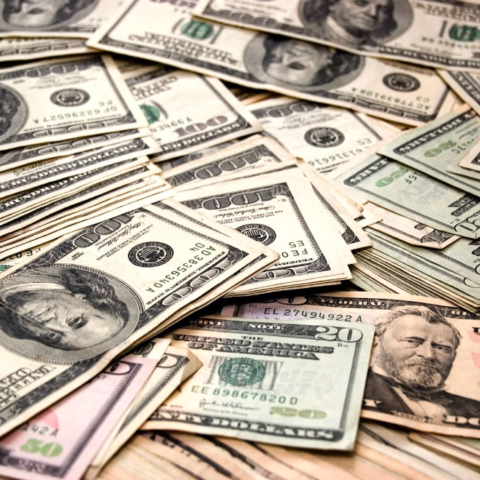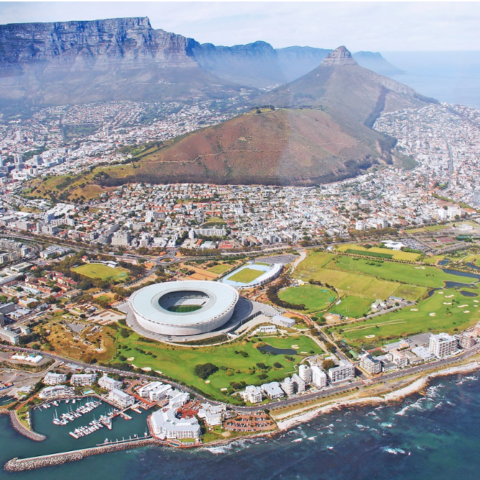 When the Arab Spring seized the world’s headlines in 2011, there was excitement in the air. Indeed, the word “spring” itself evoked the hopefulness felt by people around the world. Conversations in coffee shops and Twitter feeds were emboldened by the promise of the democracy and prosperity to come. Yet today, the Middle East seems just as mired in conflict as it did three years ago. Egypt has been unable to shake the paternalistic hand of its military. Iraq and Syria are stuck between Assad and ISIL. The wounds of war in Israel and Palestine are fresh once more. Between so many tragedies and crises, a nascent democracy could easily slip past the radar. While the world was wringing their hands over Syria, Palestine, and ISIL, Tunisia passed a promising constitution.
When the Arab Spring seized the world’s headlines in 2011, there was excitement in the air. Indeed, the word “spring” itself evoked the hopefulness felt by people around the world. Conversations in coffee shops and Twitter feeds were emboldened by the promise of the democracy and prosperity to come. Yet today, the Middle East seems just as mired in conflict as it did three years ago. Egypt has been unable to shake the paternalistic hand of its military. Iraq and Syria are stuck between Assad and ISIL. The wounds of war in Israel and Palestine are fresh once more. Between so many tragedies and crises, a nascent democracy could easily slip past the radar. While the world was wringing their hands over Syria, Palestine, and ISIL, Tunisia passed a promising constitution.
It was Tunisia’s revolution that sparked the Arab Spring. Despite indications of growth in Tunisia, standards of prosperity had been declining. Overall life evaluations were trending downward, and Tunisians were increasingly dissatisfied with their government’s competency. The Ben Ali regime was corrupt, and popular opinion suggested that the bureaucratic structure was extremely prohibitive to entrepreneurship. Few believed the country’s economic growth was being passed down to them, and, eventually, these frustrations culminated in revolution. President Zine el-Abidine Ben Ali was overthrown, and free elections were held. A moderate Islamic party, Ennahda, was elected. They entered into a coalition with two other secular parties— a gesture of bipartisanship that would be seen again.
It was, however, a rocky start. In 2013, Ennahda agreed to step down to break a growing political impasse. Tensions had risen after two liberal opposition leaders were assassinated by suspected Islamic extremists. A technocratic government was installed until the constitution could be finished. The Ennahda party, in sharp contrast to the unyielding Muslim Brotherhood in Egypt, has allowed the political process to proceed through their commitment to democratization. When the constitution was passed in January 2014, they compromised, agreeing to leave Shariah law out of the constitution. The product is an encouraging example of a truly Arab democracy: one that upholds both traditional values and modern freedoms.
The constitution lists Islam as the official religion, but it protects freedom of belief and the political impartiality of places of worship. It asserts the family as the basic structure of society, but it also grants men and women full equality under the law. Article 8 recognizes the vital role youth play in building a civically engaged nation, and “strives to give them responsibility and expand their contribution to social, economic, cultural and political development.” In a society with 39 percent of the population currently under the age of 24, youth involvement is absolutely critical to its future success. These clauses are indicative of an assembly committed to creating a uniquely Tunisian democracy. Such an institution is built to protect the freedoms of its people while also honoring the society it is meant to serve.
In addition to a thoughtfully prepared constitution, a strong set of election legislature has been promoted. These laws are robust enough to give the country the tools to set up free and fair elections. They uphold transparency and inclusiveness and ensure equal access to the media. Oftentimes, the biggest hurdle when forming a new democracy is protecting the institutions and election processes outlined in a constitution. Tunisia’s election laws provide an effective structure to bring their constitution into reality.
Tunisia’s success is heartening, if not surprising. It begs the question: How has Tunisia manage to break the cycle of autocracy and institutional dysfunction, while their neighbors have not?
Tunisia is blessed with multiple factors that have expedited the process of democratization. Perhaps the most important among them is Tunisia’s historically apolitical military. The past two autocratic leaders in Tunisia weakened the military for fear of military coups. Ben Ali relied upon the Ministry of Interior for the majority of his political maneuvering and purposely isolated the armed forces. This encouraged a culture of political neutrality within the military. When the Ben Ali regime fell, the military stepped up to provide security but remained uninvolved in politics. Not only did this promote stability in the aftermath of the revolution, but it also allowed Tunisia to sidestep the trap of military intervention seen in Egypt and in Latin America in the 20th century.
Tunisia’s lack of oil has also aided democratization. While oil can be immensely helpful in terms of economic development, it often trivializes the state’s responsibility to its people. Because oil-rich regimes do not rely on taxation, their obligation to serve the people’s interest is diluted. Their legitimacy is not derived from the people, but from their access to oil. By comparison, when Tunisians felt that the Ben Ali regime was not serving their economic needs, they revolted. There was a sense of ownership over governance. The level of cooperative statesmanship seen in current Tunisian politicians demonstrates this commitment to a responsive, democratic government. This cooperation is much harder to find in Libya, a country similar to Tunisia in many respects except oil production.
Going forward, Tunisia still faces many challenges. The economic situation has not improved, and three years of political turmoil and upheaval have exhausted many Tunisians. Many miss the stability the old regime afforded and are frustrated with the slow process of democratization. There is some apathy among youth who have seen little real change, but activism groups are working hard to get this important sector to the polls. As the country looks toward elections in November, two issues will be at the forefront. Tunisians will look for promises of economic improvement and assurance of Ennahda’s moderate nature. Ennahda has emphasized its willingness to share power with other parties. Now, it’s time to hear what Tunisians think.


